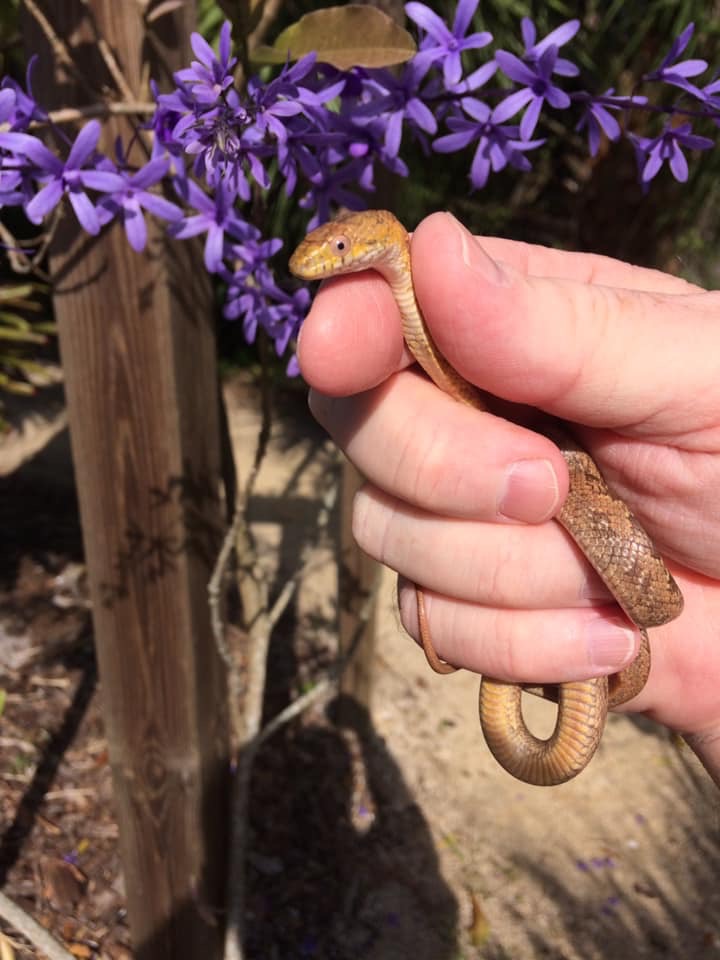Venomous and nonvenomous snakes are a natural part of the Florida environment. Unfortunately, many people suffer from ophidiophobia – which is a strong anxiety toward all snakes (Schaefer 2019). Having increased knowledge of which snakes are venomous and could potentially harm people and which snakes are harmless to people can help keep people out of harm’s way. You can help make communities safer in Florida for both people and snakes by learning about them.

According to the Florida Fish and Wildlife Conservation Commission, there are 44 native species of snakes in Florida (FWC 2021). Snakes are found in residential areas as well as natural areas such as forested uplands, coastal mangroves, and freshwater wetlands. Only six venomous species of native snakes in Florida are potentially harmful to people. They include the eastern coral snake, the eastern copperhead, the cottonmouth (water moccasin), eastern diamond-backed rattlesnake, timber rattlesnake, and the dusky pygmy rattlesnake. UF/IFAS has a publication “How to deal with unwanted wildlife in urban areas” for those people in need of advice about unwanted snakes in their yards. It should be pointed out that snakes play a beneficial role in the environment by helping reduce rodent populations which can destroy crops and spread diseases to people.
Below are some resources I find particularly helpful when teaching people about venomous and nonvenomous snakes in Florida.
Florida Museum of Natural History – Identify a Florida Snake
Florida Fish and Wildlife Conservation Commission – Florida’s Venomous Snakes
Florida Fish and Wildlife Conservation Commission – Florida’s Nonvenomous Snakes
References
FWC. 2021. Living with Snakes [Retrieved online 10/11/2021] https://myfwc.com/conservation/you-conserve/wildlife/snakes/
Schaefer, J. (2019) Dealing with Unwanted Wildlife in an Urban Environment. [UF/IFAS EDIS] Publication WEC20.
The mission of the University of Florida Institute of Food and Agricultural Sciences (UF/IFAS) is to develop knowledge relevant to agricultural, human and natural resources and to make that knowledge available to sustain and enhance the quality of human life. With offices in each of Florida’s 67 counties, UF/IFAS Extension works to bring science-based solutions to the state’s agricultural and natural resources industries, and all Florida residents.
UF/IFAS Extension programs are open to all persons without regard to race, color, sex, age, disability, religion, or national origin.
 0
0
